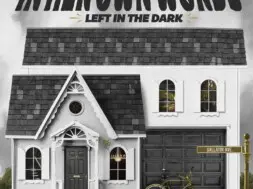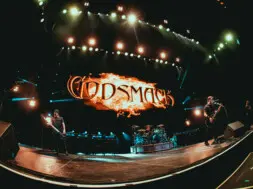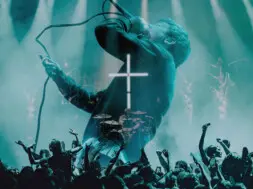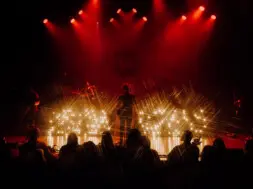
This November, the UK’s finest modern metal band will headline London’s Brixton Academy. If they sell it out – which they more than deserve to – they’ll be playing to 5000 people. The last time Architects played the venue was in 2011, not long after the release of The Here and Now, which at the time was warmly received but is now seen as the black sheep of their discography. They were playing as support to Bring Me the Horizon, sandwiched between Parkway Drive and The Devil Wears Prada, and Here and Now’s stripped-back, radio-friendly sound had rendered them the odd band out on the bill. That night they looked like a group going through an identity crisis, torn between the technical, heartfelt math-metalcore that had built them their profile and the more straightforward rock and ballads that they appeared to hope would take them to the next level. That didn’t happen, and over the past five years Architects have sought to distance themselves from what was in retrospect a big misstep. They achieved that and more with 2014’s Lost Forever // Lost Together, a collection that married hooks to granite-heavy breakdowns and heartfelt political lyrics. It deservedly represented Architects’ breakthrough, so it is unsurprising that All Our Gods Have Abandoned Us largely follows in the same vein.
If anything, it’s even more bitter and uncompromising than its predecessor. There’s barely a trace of light on this album; whether the band are unleashing their trademark cavalcade of metallic fury or embracing their increasingly drawn-upon skill in post-metal atmospherics, there’s a hopelessness to All Our Gods that initially makes it difficult for the listener to get their head around it. “Nihilist” forgoes any kind of build up in favour of a straight right hook to the face, taking off at a blistering pace and refusing to let up. It’s such an intense opening gambit that what follows it isn’t as immediately arresting, but the grandiose trudge of “Downfall” and stop-start final section of “Phantom Fear” prove brilliant in their own right. There are very few obvious hooks to be found across the course of All Our Gods, which often runs closer to the tech-death realm of Fallujah and Inanimate Existence than it does Architects’ obvious metalcore comparison points.
There are exceptions to this rule: “A Match Made in Heaven” is the towering, anthemic centrepoint that makes a convincing case for the best song Architects have ever put their name to. The album’s middle section is its strongest, whether it’s the surging double kicks of “The Empty Hourglass”, driving it more insistently than most of the other tracks, or the intriguingly restrained slowburner “All Love is Lost”, which is far-and-away the most experimental moment here. Throughout the overall air of pessimism is maintained, not only in the noir soundscapes of thick distorted guitar but also in Sam Carter’s lyrics. He’s as angry here as any rock vocalist in 2016, and those who took umbrage with the confrontational lyrics of “Broken Cross” from Lost Forever might want to steer clear of this one. But that Carter consistently has something to say here marks Architects out not only as an excellent band but also an important one, and regardless of what he’s screaming about he always does so with conviction.
The strictness with which All Our Gods anchors itself to the album immediately before it does somewhat detract from it, particularly because it isn’t as breathtaking on first listen as Lost Forever. The riffs do suffer from a lack of variation, which is surprising given the arrival of Adam Christianson to compliment mainstay guitarist and songwriter Tom Searle. Those who found the Architects trademarks – techy riffs, confrontational lyrics, “BLEGH!”s – too often called upon before will only find more to dislike this time around. These things are nonetheless employed far better than by almost every other band. If there’s better breakdown in 2016 than the first in “Gone With the Wind”, this is a going to be a golden year for moshpits. There are some tracks (“Gravity”, “From the Wilderness”) which don’t stand out at all, but that certainly cannot be said of 8-minute closer “Memento Mori”, which introduces industrial noise and well-chosen sampling into the band’s repertoire and stands as one of their most successful experiments.
It’s difficult to describe an album this challenging and, frankly, unfriendly as fun to listen to, but it is one of the best records of the year so far regardless. All Our Gods Have Abandoned Us is an excellent follow up to what came before it in the same way that Slipknot’s Iowa built on their self-titled: it’s not as immediately gripping, and does not have as many top-tier songs, but does push the grimy bitterness of its predecessor to such a magnitude that it makes it sound almost tame in comparison. There’s a lot to be angry about in the world today, and Architects have concocted as effective a sonic distillation of that as any band is likely to.















